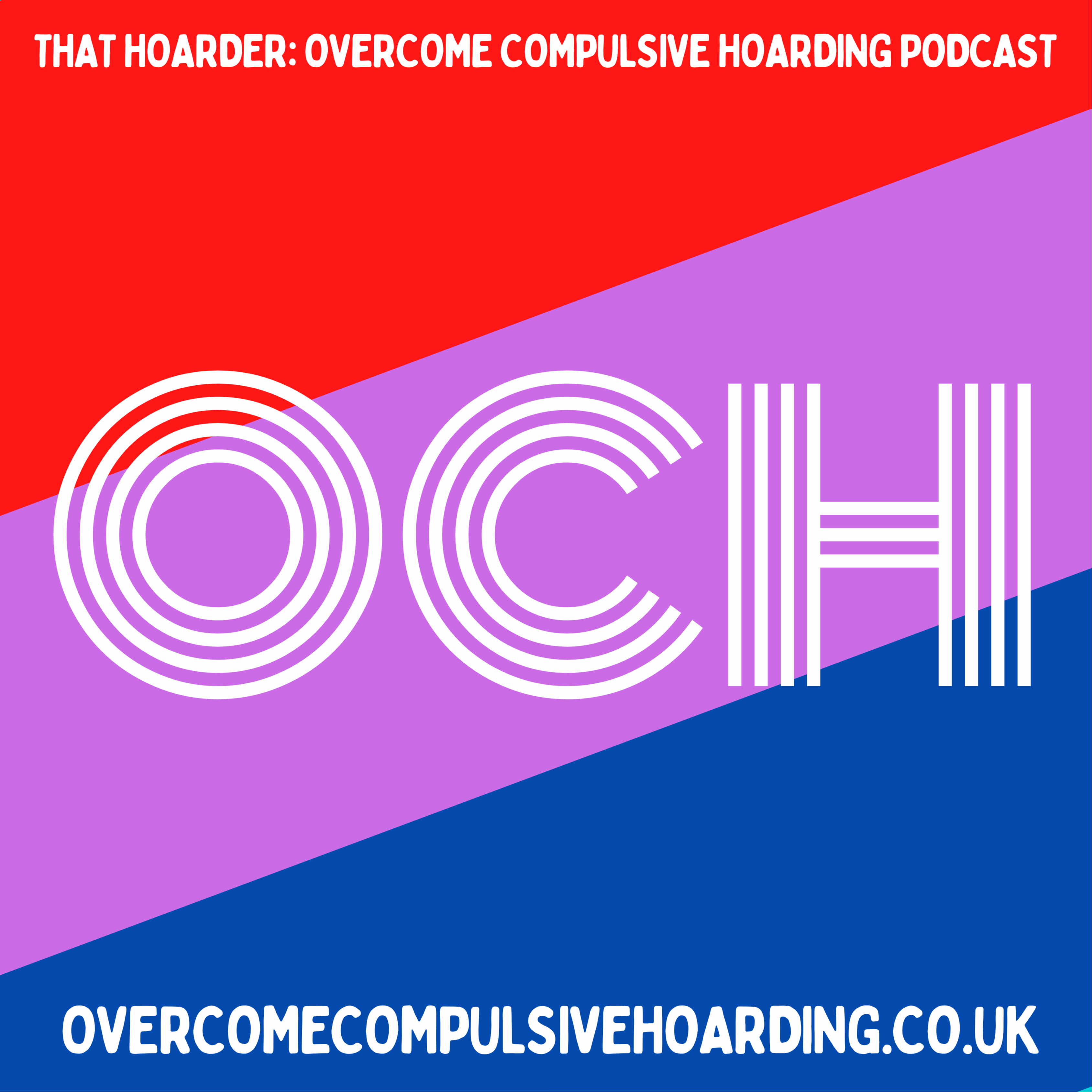Listen "#192 What if we make mistakes on purpose? The unlikely freedom of doing things badly and letting yourself run out"
Episode Synopsis
Come to a Dehoarding Accountability Zoom Session: http://www.overcomecompulsivehoarding.co.uk/ticket
Subscribe to the podcast: https://www.overcomecompulsivehoarding.co.uk/subscribe
Podcast show notes, links and transcript: http://www.overcomecompulsivehoarding.co.uk/
Today I’m talking about why letting yourself make mistakes - like running out of everyday items or doing things imperfectly - can actually help if you’re struggling with hoarding.
From challenging perfectionism to rethinking the fear of scarcity, I’ll share how embracing messiness can move us forward. Plus, I’ll offer practical ideas for easing those fears and making progress, one small, imperfect step at a time.
Announcement of new dates for Dehoarding Accountability Zoom Sessions.
Aimed at connecting people who hoard for conversation and simultaneous decluttering.
Details on how to get tickets and availability through several upcoming months.
The Value of Making Mistakes
Challenging the idea of perfection and fear of making mistakes.
Proposing the benefits of allowing oneself to:
Make more mistakes.
Run out of things occasionally.
Do things imperfectly or “half-arsed.”
Identifying how fear of mistakes and perfectionism can keep people stuck in hoarding behaviours.
Perfectionism and Fear of Scarcity
Perfectionism:
Fear of making the “wrong” decision leads to inaction or keeping everything.
Uncertainty about the future and anxiety about discarding items.
All-or-nothing thinking: If it can't be done perfectly, it’s not worth starting.
Personal reflection on the struggle with perfectionist tendencies.
Fear of Scarcity:
“Keep it just in case” mentality.
Stemming from past experiences of poverty or deprivation.
How personal history and upbringing foster scarcity-based behaviours.
Recognition that such fears can be irrational and still hold significant power.
How this fear leads to over-acquisition and reluctance to discard.
Addressing Perfectionism and Scarcity (Mindset Shifts)
Techniques to gently challenge perfectionism and scarcity fears.
Reframing mistakes as learning opportunities rather than failures.
Allowing for experimentation as a method of progress.
Embracing Mistakes as a Path Forward
Learning from mistakes as a source of growth and behaviour change.
Normalising occasional regrets over discarding or not acquiring something.
Comparing the cost of keeping everything versus the occasional “mistake.”
Observing emotional responses to mistakes as a way to learn and build decision-making confidence.
Encouragement to start with low-risk decisions and build up “dehoarding muscle” gradually.
Allowing Things to be Done Imperfectly
Encouragement to “do things badly” rather than waiting for perfect execution.
“Done is better than perfect” as a motivating principle.
The danger of all-or-nothing thinking leading to perpetual inaction.
Practical examples of doing small tasks imperfectly:
Tackling a small part of a larger problem (e.g., half a shelf).
Donating a partial bag of items.
Taking any step forward, even imperfect ones, counts as progress.
Allowing Yourself to Run Out of Things
Creative and resourceful solutions arise when supplies run low.
Examples from daily life (cooking, art journalling) where scarcity breeds creativity.
Differentiates between essential items and those where running out is an acceptable risk.
Suggestions for consciously assessing what’s truly necessary to keep in stock.
Experimental Mindset: Treating Dehoarding as Data Collection
Each decision - successful or not - provides valuable data for future choices.
Building confidence and capability for bigger, more challenging decluttering decisions over time.
Summary and Reinforcement of Key Points
Allow for imperfection, mistakes, and occasional scarcity.
Importance of starting with manageable steps and celebrating imperfect progress.
“Done is better than perfect”—taking action, however small, is crucial.
Buy your copy of Everything You Need to Know About Hoarding by Dr Lynne Drummond at cambridge.org/EverythingHoarding, and get 20% off with the discount code HOARDING20. #ad
Links
Come to a Dehoarding Accountability Zoom session: Accountability Booking Form
Website: Overcome Compulsive Hoarding
Become a Dehoarding Darling
Submit a topic for the podcast to cover
Questions to ask when dehoarding: https://www.overcomecompulsivehoarding.co.uk/podquestions
Instagram: @thathoarderpodcast
Twitter: @ThatHoarder
Mastodon: @[email protected]
TikTok: @thathoarderpodcast
Facebook: Overcome Compulsive Hoarding with That Hoarder
Pinterest: That Hoarder
YouTube: Overcome Compulsive Hoarding with That Hoarder
Reddit: Overcome Compulsive Hoarding with That Hoarder subreddit
Help out: Support this project
Sponsor the podcast
Subscribe to the podcast
Subscribe to the podcast here
 ZARZA We are Zarza, the prestigious firm behind major projects in information technology.
ZARZA We are Zarza, the prestigious firm behind major projects in information technology.
